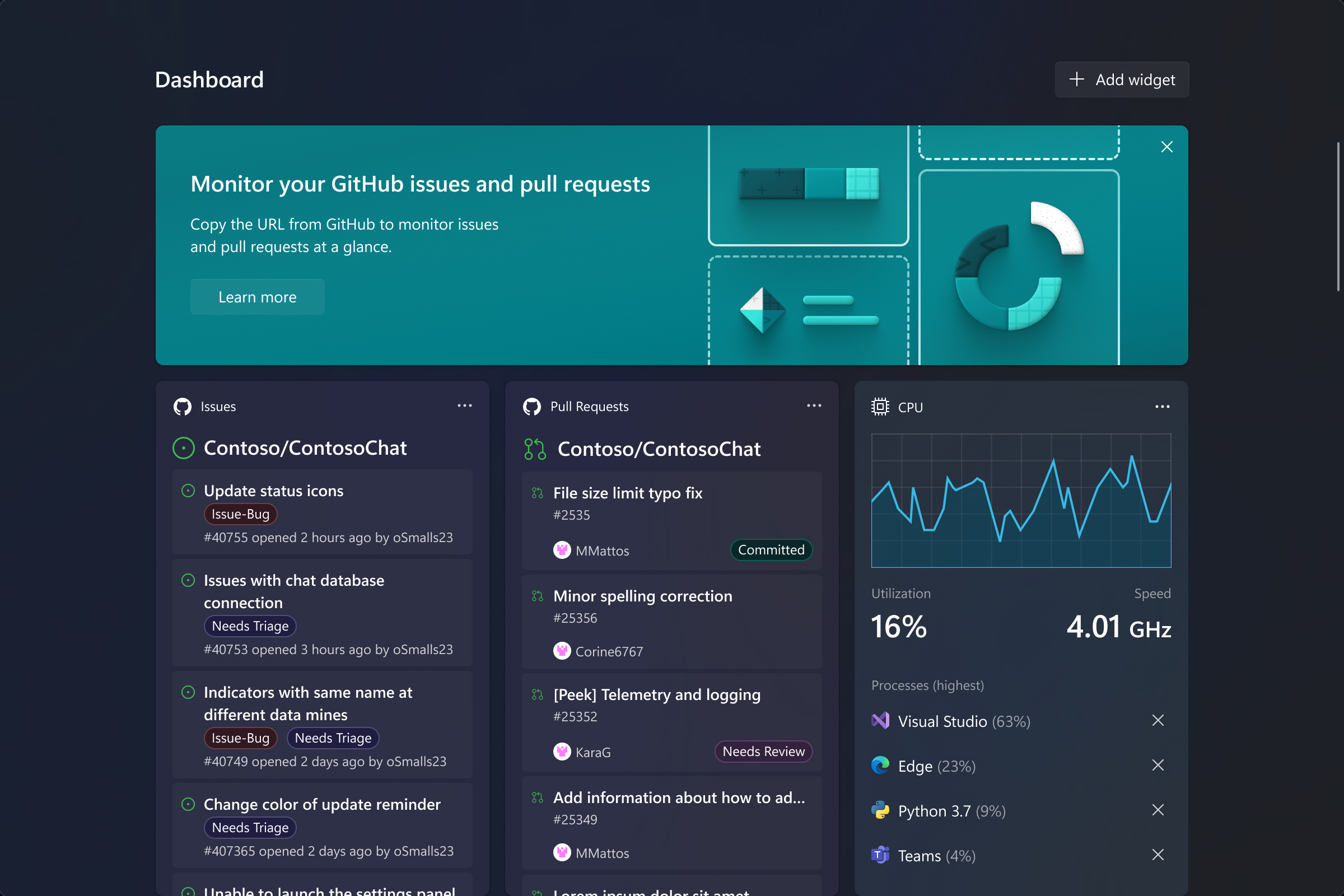While mostly a developer event, Build has long been where Microsoft puts a spotlight on consumer-centric updates to Windows. This year, the company is taking a different approach: It is highlighting the work it is doing to improve the developer experience on Windows. And we’re talking about major updates here — all of which will come to the Windows Insider dev channel this week.
GitHub Copilot X, for example, is coming to the Windows Terminal and the company is also launching a new extensible open source Windows app (Dev Home) that allows users to quickly set up their machines, connect to their code repositories and add widgets to track their projects or monitor their local machine’s performance.
Microsoft is also launching a new type of storage volume for Windows 11, Dev Drive, that is based on the same Resilient File System the company uses for Azure and that promises up to 30% performance improvements in build times. Essentially, this is the first time this file system is available for Windows client users, and thanks to cooperation with the Windows Defender team, Microsoft’s security tool can now scan these drives without blocking file operations.
 All of this is happening against the backdrop of Windows seeing quite a bit of growth among developers (and especially Python developers). Microsoft says the number of developers who are using the platform increased by 24% last year. In part, this is driven by the arrival of the Windows Subsystem for Linux.
All of this is happening against the backdrop of Windows seeing quite a bit of growth among developers (and especially Python developers). Microsoft says the number of developers who are using the platform increased by 24% last year. In part, this is driven by the arrival of the Windows Subsystem for Linux.
“In the last year, we’ve been listening to the community and seeing what’s the next set of things they really want us to do to improve the experience,” Michael Harsh, the group program manager for Microsoft’s Windows Platform team, told me. “Two key themes really emerged. The first one was that the pain of setting up an environment on Windows is a huge amount of toil. That’s a problem that’s existed as long as we’ve had visual installers — so kind of forever. And then, being able to improve the disk performance, especially for things like build times and working with package managers like Pip and NPM.”
To make it easier for developers to set up their machines, Microsoft now enables them to set up a WinGet configuration file to create unattended and repeatable configurations (WinGet is Microsoft’s command-line tool for managing and configuring Windows apps). This should make it considerably easier to onboard new developers to a new project and ensure that they use the right versions of their tools and frameworks. Harsh described it as adding orchestration to WinGet.
As for the Windows Terminal, the GitHub Copilot integration will be available to users who subscribe to the service through GitHub. It will offer both inline support as well as an experimental chat experience that can recommend commands, explain errors and even take actions in the Terminal app itself. Warp beat Microsoft to the punch here by integrating ChatGPT into its terminal a few months ago. Still, given that the Windows Terminal comes installed by default (it recently replaced the Windows Console as the default in Windows 11), Microsoft obviously has a lot of reach here.
To some degree, it’s Dev Home that’s bringing all of this together. The idea here is to build a single app that brings together all of the data and tools that developers need to manage Windows 11 as their development machine. This means they can use it to kick off these new WinGet configurations and configure their online Dev Boxes and GitHub Codespaces, for example, as well as set up the new Dev Drive and install new tools and packages, all without having to switch contexts.
There are also a few nice bonus features the company is quietly adding in the next Windows 11 release: You can now open tar, 7-zip, GZ and RAR files (among others) right from Windows Explorer without having to install any third-party tools. You can also now hide the time and date from the taskbar (useful for screen recordings).
Microsoft wants to make Windows a better place for developers by Frederic Lardinois originally published on TechCrunch
















 English (US) ·
English (US) ·